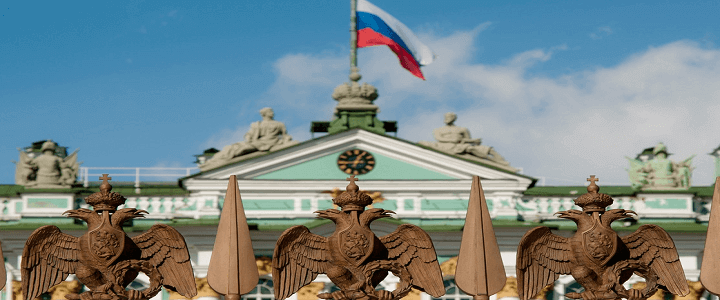Stop me if you’ve heard this one before. An attractive young Russian woman befriends a middle-aged American man, travels to America on a student visa, moves in with him, and uses him as a means to gain introduction to power brokers. But the woman is, in fact, an agent of the Russian government; her relationship with the middle-aged man is just a means to an end in her efforts to further the interests of the Russian government.
Okay, so maybe we haven’t come across this exact scenario before, but there are many similarities to every other time a man has been caught in a honey trap. If I’ve said it once, I’ve said it a million times: if you’re 56, and an attractive 29-year old foreign-born woman shows a romantic interest in you, she’s not after your body. Especially if you have a security clearance.
Another red-haired bombshell
You may recall the case of Anna Chapman, born Anna Vasil’yevna Kushchyenko, the Russian spy arrested along with nine others in 2010 as part of a Russian spy ring in New York. Chapman, a ginger beauty the Russian press named “Agent 90-60-90,” and her accomplices were swapped for several Russians who had been western agents, including Novichok target Sergei Skripal.
But Chapman has a rival. On Sunday, federal agents arrested 29-year-old Mariia (also spelled Maria) Butina, a Russian national, charging her with acting as an agent of a foreign government. Butina traveled to the U.S. in August 2016, allegedly to pursue a master’s degree at American University in Washington.
Before arriving, she had already selected her mark, who the indictment calls “Person 1,” but who the Washington Post has identified as Paul Erickson, a 56-year-old political operative from South Dakota.
There is no indication that Erickson has or ever had a security clearance, but the case is a good illustration of the importance of investigating an applicant’s foreign contacts. The indictment says Butina and Erickson met in Moscow “in or around 2013.” One wonders if the Russians were already planning their influence operation then (in the first year of President Barack Obama’s second term), or if, once they decided on a course of action, they decided to leverage Butina’s relationship. Either way, it’s not a good look for Erickson.
Based on information in the “memorandum in support of pretrial detention,” it’s hard to see how Erickson won’t be indicted soon himself. It’s hard to believe that he didn’t know she was working on behalf of the Russian government.
Butina lived with Erickson and, according to the memo, “was involved in a personal relationship during the course of Butina’s activities in the United States.” But unfortunately for Erickson, she didn’t love him for him. The government alleges that she simply treated the relationship “as a necessary aspect of her activities,” and “expressed disdain for continuing to cohabitate” with Erickson in communiques with her Russian handler.
She also, according to the government, offered “sex in exchange for a position within a special interest organization” to another person at an unspecified time. Butina was a very busy woman.
Clear ties to Torshin
Butina declared on her visa application that she had previously worked for an unspecified Russian government official, but had ceased that employment in May.
Based on the information about this unnamed official in the indictment and the fact that both Butina and the official were involved with the National Rifle Association, it’s fairly clear that the official in question is Alexander Torshin, the Deputy Governor of the Central Bank of the Russian Federation.
According to an FBI affidavit that supported the grand jury’s indictment, Butina’s association with Torshin did not end. Instead, he was running her operations in the U.S. Butina used her supposed gun rights activism to ingratiate herself with Republican officials in an effort to establish a “backchannel” to the Russian government.
It’s unclear if that backchannel ever came to be, but Butina’s case is another indication of the lengths the Russian government was willing to go to in order to influence not just the 2016 presidential election, but U.S. policy toward Russia in general.




